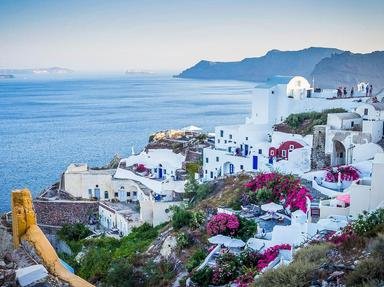
European Cities Ending in "A" - Italian or Not? Quiz
All the names of these European cities end with the letter "A". Can you find those that are located in Italy?
A collection quiz
by LadyNym.
Estimated time: 3 mins.
- Home
- »
- Quizzes
- »
- Geography Trivia
- »
- Europe
- »
- Europe - Cities